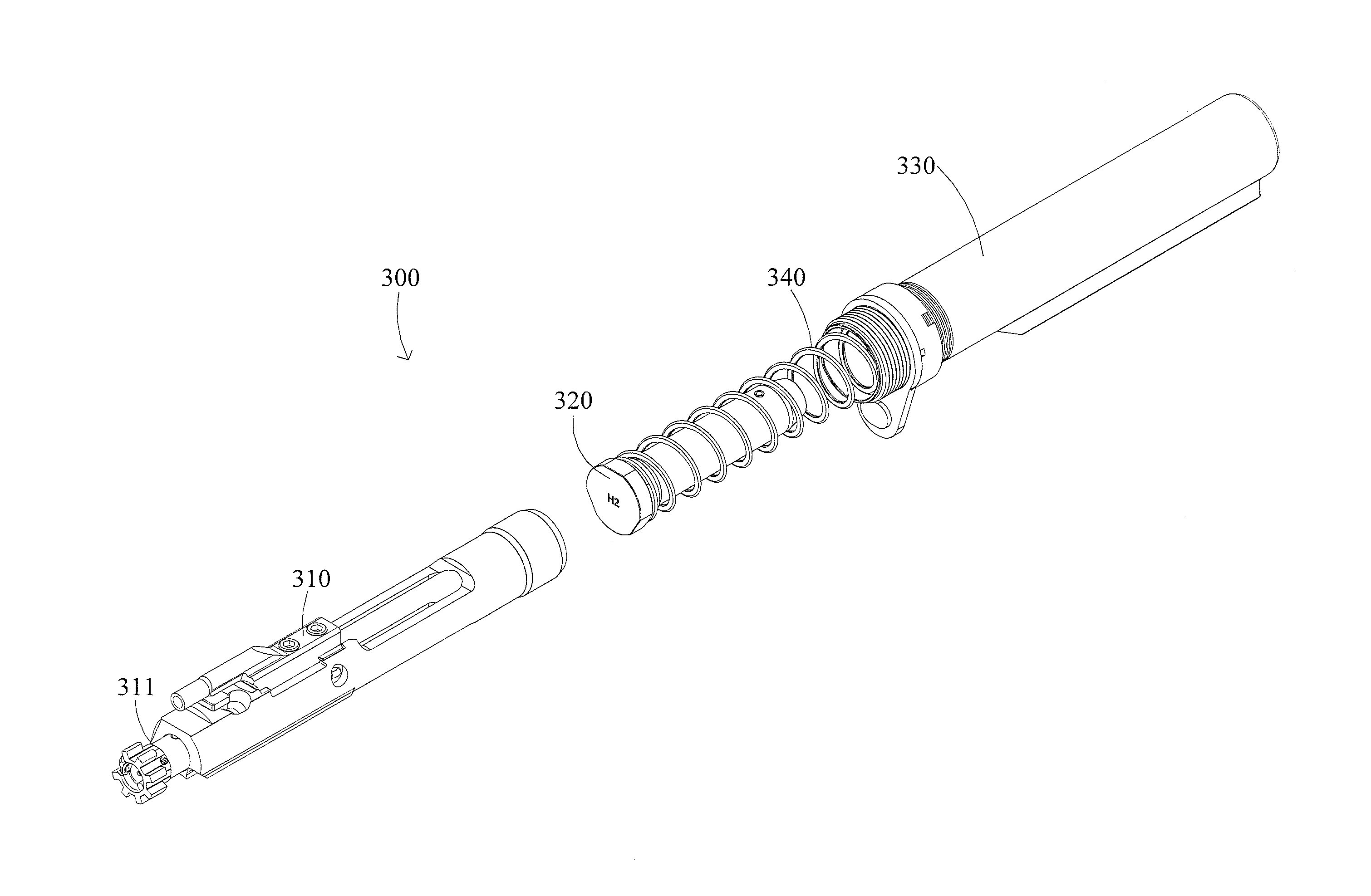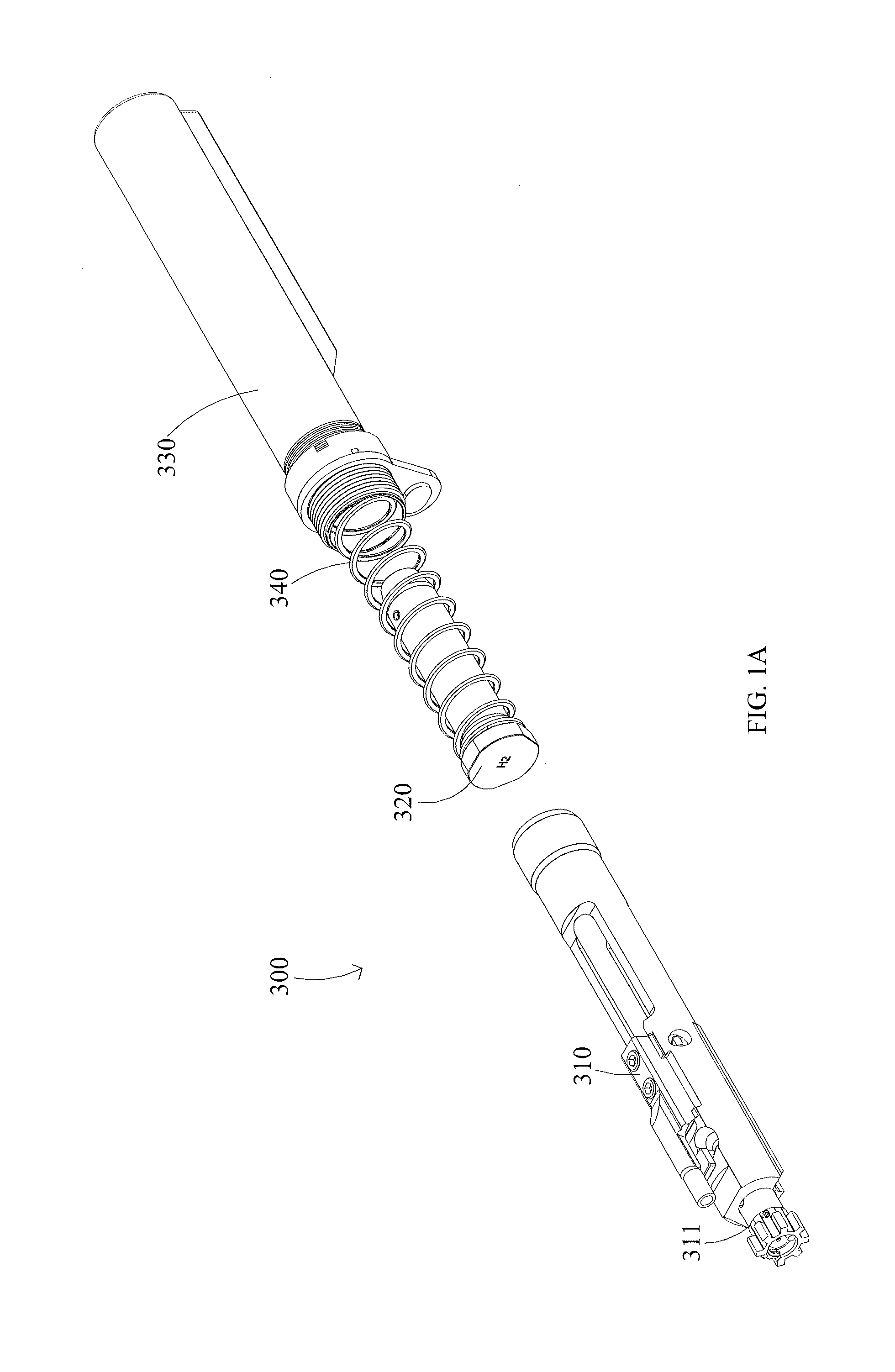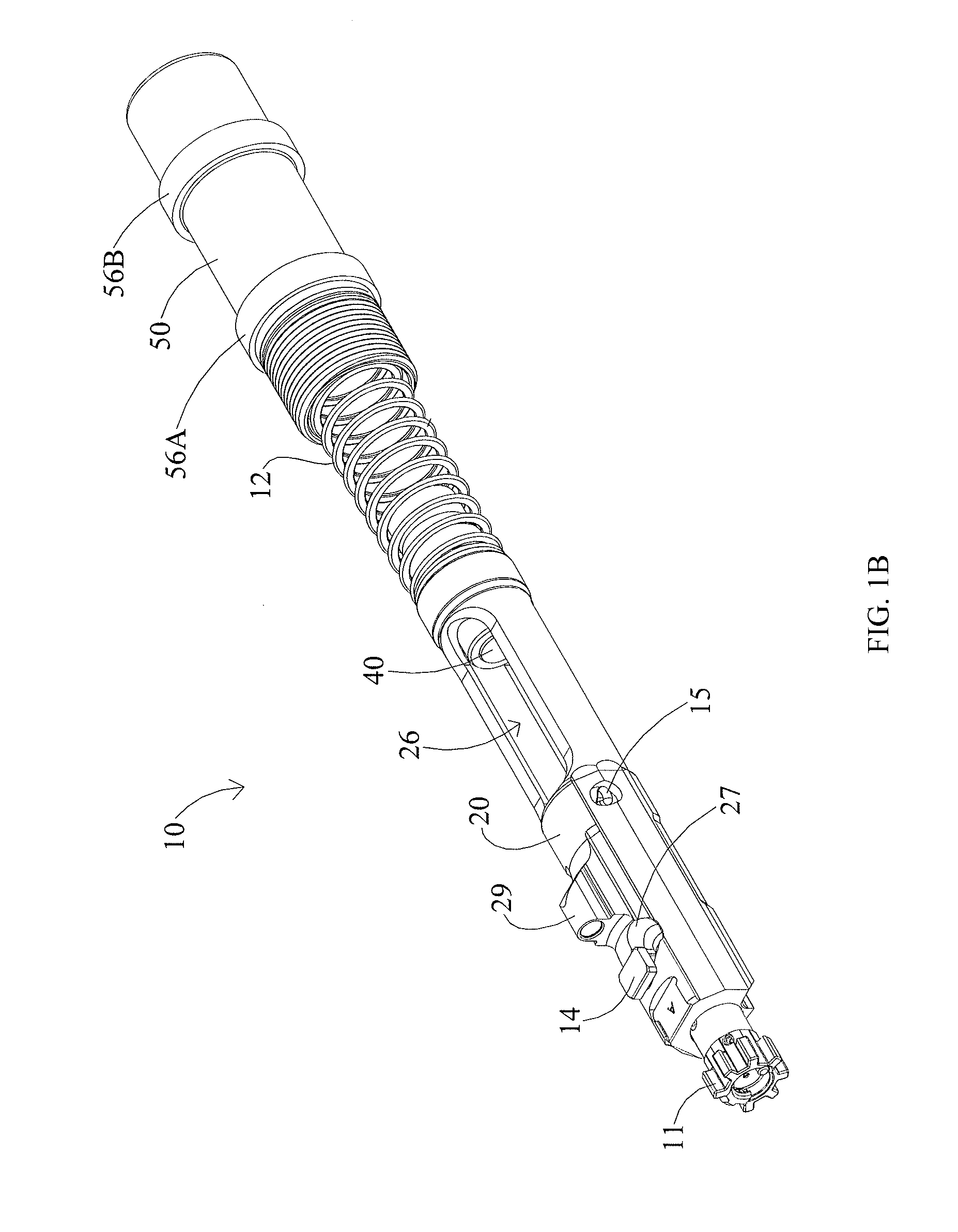Firearm buffer system and buttstock assembly
a buffer system and buttstock technology, applied in the field of gas-operated firearms, can solve the problems of poor terminal performance of typical rifle cartridges such as 5.5645 mm (5.56 mm) and 7, and the general deficiency of handgun ammunition in penetrating intermediate barriers, so as to facilitate the reduction of the overall length of the buffer tube, the effect of reducing the overall length of the two components
- Summary
- Abstract
- Description
- Claims
- Application Information
AI Technical Summary
Benefits of technology
Problems solved by technology
Method used
Image
Examples
Embodiment Construction
[0050]In describing a preferred embodiment of the invention illustrated in the drawings, specific terminology will be resorted to for the sake of clarity. However, the invention is not intended to be limited to the specific terms so selected, and it is to be understood that each specific term includes all technical equivalents which operate in a similar manner to accomplish a similar purpose.
[0051]The present invention is directed towards a compact buffer assembly for use with AR15 / M16 type firearms to include, for example, the M4, AR10, SR25 and piston operated designs such as LWRC International's M6 series of rifles. As used herein, the phrase “bolt carrier group” and “bolt carrier assembly” are used interchangeably.
[0052]Unless otherwise specified, the various components which make up the trigger mechanism, upper receiver assembly, lower receiver assembly, bolt and bolt carrier assembly are those found on prior art AR15 / M16 type firearms.
[0053]As used herein, the word “front” or ...
PUM
 Login to View More
Login to View More Abstract
Description
Claims
Application Information
 Login to View More
Login to View More - R&D
- Intellectual Property
- Life Sciences
- Materials
- Tech Scout
- Unparalleled Data Quality
- Higher Quality Content
- 60% Fewer Hallucinations
Browse by: Latest US Patents, China's latest patents, Technical Efficacy Thesaurus, Application Domain, Technology Topic, Popular Technical Reports.
© 2025 PatSnap. All rights reserved.Legal|Privacy policy|Modern Slavery Act Transparency Statement|Sitemap|About US| Contact US: help@patsnap.com



